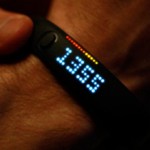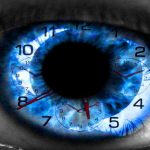Tell me your sleep patterns and I’ll tell you how you perform!
Today, the importance of aspects such as nutrition or regular physical activity have become broadly understood. What few people know is the fact that sleep is just as important, and it represents the third pillar of health, as it was proved to severely impact one’s health, safety and, of course, overall performance.
Why is sleep so important?
First of all, sleep disorders are strongly associated with severe health problems. According to the National Sleep Foundation, this issue has been linked to hypertension, heart disease, stroke, depression, diabetes and other chronic diseases.
According to the report “Sleep Disorders and Sleep Deprivation: An Unmet Public Health Problem”, published by the Institute of Medicine (US) Committee on Sleep Medicine and Research within the National Center for Biotechnology Information, sleep disorders severely impact daily performance, mainly when it comes to attention, vigilance, memory, response time, divergent thinking, learning, decision making and, of course, productivity.
Can I improve my performance by getting a good night’s sleep?
No doubt, getting not only enough, but also qualitative sleep should be part of everyone’s personal performance improvement plan. Therefore, whether you are dealing with chronical sleep disorders, working in shifts or simply having difficulties with finding the time to get a good night’s sleep, it is high time you solved these issues, if you want to achieve high levels of both personal and professional performance!
Problems such as lack of productivity, attention deficiencies during a lecture or presentation, driving capabilities together with emotional well-being aspects like motivation or daily mood can be positively influenced by good sleep, as the American National Institute of Health explains.
What can I do to get a better night’s sleep?
According to Healthy Sleep, a resource offered by the WGBH Educational Foundation and the Harvard Medical School Division of Sleep Medicine, faulty sleep patterns can be overcome only by working with the factors that interfere with sleep. To this purpose, they offer 12 tips that could help you diminish sleep issues, namely:
- Avoid caffeine, nicotine or other stimulants before bed time;
- Make sure your bedroom is a sleep-inducing environment: a quiet, dark and cool environment helps you get better sleep;
- Establish a pre-sleep routine, by replacing stressful activities with relaxation;
- Go to sleep when you are tired;
- Do not watch the clock, as this increases stress;
- Use light in your advantage
- Respect a consistent sleep schedule, in order to set your “internal clock”
- Take a nap either at early hours or not at all
- Eat light food in the evening
- Drink enough fluid
- Exercise early
- Stick to a plan and consult a specialist if the problems persist.
How can I monitor my sleep?
One of the easiest ways to monitor your sleep is by performing a quantitative analysis. Therefore, you can easily track key performance indicators (KPIs) such as # Hours of sleep per night, % Nights with 6 hours of sleep or more or # Sleep problems. Monitoring the results of these KPIs can show you some patterns based on which you can, consequently, make informed decisions.
However, the quantitative dimension is not enough. With this in mind, different gadgets and apps were developed with the purpose of helping you gain qualitative insights on your sleep as well.
Some of the apps that can help you understand your sleep patterns and prevent problems:
- Beddit – a smartphone app that monitors your heart rate, respiration, sleep cycles and sleep time, The app relies on ballistocardiography (BCG), a scientific method for measuring cardiorespiratory functions and it detects the signals caused by heartbeat, respiration and movements of the person in bed;
- SleepCycle: it tracks time in bed and the stages of sleep, waking you up during the light ones. Both Beddit and SleepCycle only work on IOS;
- SleepBot: it includes a motion tracker that uses a smartphone accelerometer, to keep track of sleep cycles and record sound levels. Data on the sleep history, sleep time, wake time, hours of sleep and sleep lost are stored in the app’s memory. It works both with Android and IOS;
SleepTime: it incorporates an algorithm designed at Stanford University to analyze sleep cycles. The app also rates your sleep with an average efficiency percentage.
Some gadgets that help you better understand your sleep are:
- Basis Carbon Steel Edition watch: it sends, to your smartphone, an overall sleep score, as well as information on how long you slept and the time spent in each stage of sleep;
- Polar H7 heart-rate monitor: a chest band that works with the SleepRate app to determine your sleep cycles;
- Withings Aura base and mattress pad: it is placed beneath the bedding to replace body movement, breathing cycle and heart rate. All data is afterwards transferred to your smartphone;
- ResMed S+ monitor: a night stand device that monitors not only your movement and respiration, but also room temperature, light and sound levels.
Should you be interested in increasing your personal performance and productivity, improving your night’s sleep should be a priority! Stop taking sleep for granted and start tracking it, understanding it and improving it, for better health, attention, decision making and, ultimately, for better performance!
References:
- National Sleep Foundation (2014), Sleep Studies
- Healthy Sleep (n.d.), About the Healthy Sleep Web Site
- Healthy Sleep (n.d.), Twelve Simple Tips to Improve Your Sleep
- Institute of Medicine (US) Committee on Sleep Medicine and Research (2006), Sleep Disorders and Sleep Deprivation: An Unmet Public Health Problem
- National Heart, Lung and Blood Institute, National Institute of Health (2012), Why Is Sleep Important?
Image Source:








